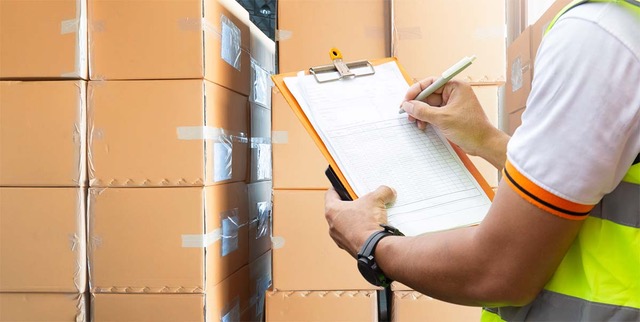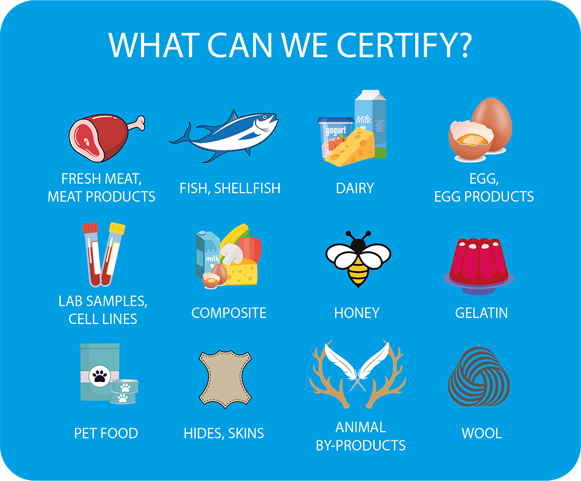The export of Products of Animal Origin (POAO) requires thorough planning and preparation to ensure successful outcomes – and yes, we know it can be an awful lot of paperwork! This can seem daunting at first, but don’t worry, we are here to help. Requirements will vary according to the goods in question and the export destination, so let’s break it down.
How to prepare POAO for export

- Start by checking the rules and restrictions for your goods in the destination country. Different countries will need different labels and packaging, so double check that you’re compliant.
- Apply for any required licenses and certificates – again, this varies between jurisdictions.
- Ensure your business has an EORI number and is registered for VAT.
- Check that the recipient of your goods is ready and able to import them.
- Plan who will transport your goods and who will make the export declarations for customs – you can do this yourself or arrange someone to do this for you.
- Classify your goods using the correct commodity code.
- Prepare the invoice and other necessary documentation such as the DEFRA Export Health Certificates and proof of origin, which may need to travel with the goods.
At Amivet Exports we have the knowledge and experience to guide you through this process from start to finish, so contact us early to discuss your requirements and make your exporting journey a success. Remember, we do this frequently, and we are here to make sure that you know exactly what you need, when you need it.
Extra steps needed to export POAO to Europe after “Brexit”
Since Brexit, the UK is considered to be a “Third Country” in terms of trade with Europe and for POAOA, this means that an Export Health Certificate (EHC) may be required. In order to complete an EHC, additional steps and documentation are usually needed; these may include:
Food Standards or Local Authority approval or registration of all establishments involved in the supply chain – abattoirs, processors, manufacturers and coldstores may be required.
- Labelling the product/packaging with correct health and identification marks. Further information can be found here.
- Applying for the correct export health certificate (yes, there are a LOT of different ones – we suggest you get in touch with us early and we can point you in the right direction).
- Providing supporting evidence in order for certification to be completed e.g. HACCP plans, temperature records, veterinary support health attestations and disease freedom checks. Different types of product, going to different countries, through different countries, all have different requirements.
- Arranging import documents or permits (where applicable).
The Northern Ireland Complication: Green and Red Lanes

Northern Ireland has a land border with the EU (Ireland), but is still part of the UK. This has led to the development of a ‘two lane’ system of entry to Northern Ireland.
Goods exported by members of the Northern Ireland Retail Movement Scheme (NIRMS), which are intended for final consumption within Northern Ireland and are specifically labelled including “Not for EU”, may enter via the “green lane” with a General Certificate.
All other goods are assumed to be for resale and thus for export into the EU. These products must enter via “red lane” and will have the same restrictions as any other exported products – i.e. with an EHC as would be required for Europe. The Movement Assistance Scheme (MAS) can assist with some of the cost of the export, however this is due to end on 30th June 2025.
Are there any export preparation services for my goods?
Businesses such as freight forwarders and customs agents can assist with specific steps in the export process.
Depending on the product and quantities for export, it may be beneficial to work with a logistics hub who can group products from different suppliers into a single consignment, collect and transport your products, and assist with customs arrangements.
At Amivet Exports we offer an experienced, professional and reliable advisory and certification service for food and products of animal origin. We can – and don’t worry, we will – advise on the preparation of goods, required supporting documents and applying for EHCs, and have a team of experienced official veterinarians available to ensure this is all completed correctly and in a timely fashion.
Do I need different certifications for different classes of goods?

Yes, the certification required will vary, depending on the goods in question and the countries to which (or through which) the goods are being exported.
Some goods will require an Export Health Certificate, while others may only need a private attestation, signed by the importer. Goods going to non-EU countries may also require a certificate of free sale.
Some POAO cannot be exported at all, and for some there are restrictions as to where they can go and which countries they can pass through.
The UK government website offers a step-by-step guide to exporting goods from the UK but there is much to be considered. Amivet are proud to be able to offer tailored, expert advice to assist you in exporting goods to both the EU and other parts of the world. Contact us early to discuss what is required for your products, to make your export business a success.
Written by Andrew Iveson on and tagged in Export, .